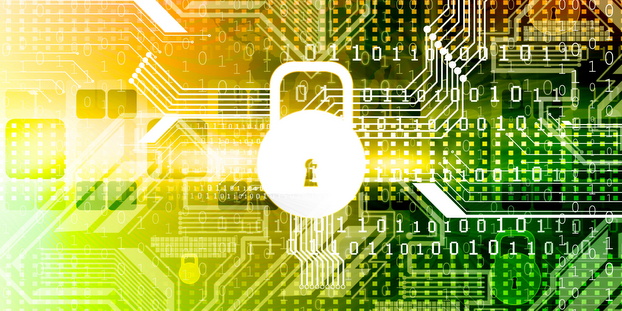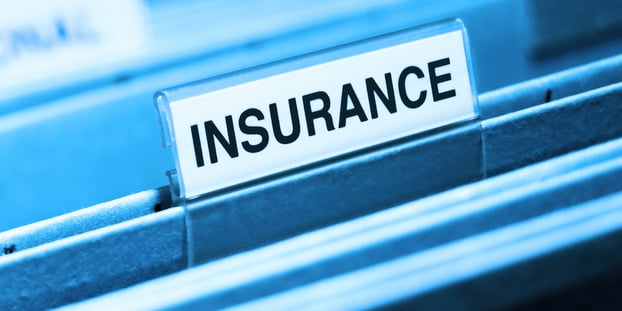
We all know craft breweries made an extraordinary effort to adapt in 2020. Earlier last year, I wrote about how these adaptations raised concerns about breweries exposing themselves to risks. Some of these concerns proved warranted, while others did not turn into major concerns. Meanwhile, widespread social unrest raised new concerns for businesses, particularly those in major cities. Yet many of these challenges can often be addressed by stepping up or reconsidering risk management practices you have probably already adopted. Here’s what has and hasn’t changed in brewery risk management during 2020.
Operating during a pandemic. Breweries and taprooms have risen to the challenge of operating within public health guidelines provided by local and state governments, as well as the CDC. We’re seeing breweries lease adjacent parking lots for outdoor seating, pop up tents on sidewalks and generally find ways to make their outdoor spaces a safe and comfortable place to enjoy a few beers.
It is still unclear the total impact the pandemic will have on businesses. However, we can understand the risks associated with operating during a public health crisis and use best practices to address them. We’ve all seen stories about bars being cited for allowing packed crowds of people to gather on their patios. No one wants to be that business owner. Follow the guidelines and rules provided to businesses by the CDC and local governments. Make sure you have posted appropriate signage about social distancing and face masks. Insurance cannot protect your patrons from COVID-19 and it cannot protect your reputation from the perception that you do not take public health seriously.
Also consider how your creative adaptations may exacerbate existing risks. Slips, trips and falls are a source of claims for any business open to the public. If you have installed tents, fire pits, heaters and new seating, how are you ensuring that obstacles are marked and pathways are clear? Maybe you have always allowed dogs in your outdoor seating areas. Are the rules for pup patrons clear? Do they need to be adapted for social distancing or to comply with local public health guidance?
Operating during civil unrest. Of course, COVID-19 was not the only major story last year. Millions of people across the country participated in civil rights protests. In major cities, some bad actors took advantage of the unrest to loot business. City centers became inaccessible as businesses were destroyed. Through election season, civil unrest has continued across the country. Though liquor stores are more likely than breweries to be targeted by looting, craft brewers have been victims of vandalism this year.
Protecting your business from vandalism starts far before a protest. Every business should prepare for disasters, whether natural or manmade, and capture their policies and procedures in a business continuity plan. This also includes checklists and contact information to support preparation, response and rebuilding. Holding mock disaster drills periodically can be helpful in reinforcing your brewery’s commitment to safety and security.
To mitigate the impact of riots and looting, preparation can include installing a metal roll-down shutter system, which deters vandals. If this is not possible, boarding up windows — if it safe to do so — can also serve as a deterrent. If there is enough time to prepare, take inventory and remove or hide valuables. As soon as it is deemed safe after an event of looting or vandalism, take steps to prevent further property damage, file a police report and then call your insurance company.
Your commercial insurance policy likely includes coverage for vandalism, riots and civil commotion. This will cover the cost of repairing physical damage to the business, as well as contents; it may also cover any steps you take to prevent further damage to your business after it has been vandalized, such as covering windows. The physical structure of your operating space and your beer are covered under different limits, meaning there is a different sub-limit for claims payouts for each type of damaged property.
Business interruption (a.k.a. business income) insurance is included in most commercial insurance policies. This can cover income lost when business comes to a halt for reasons related to a property insurance claim, such as the property damage caused by vandalism.
Pivoting to deliveries. During shutdowns, breweries have offered beer by delivery to eager customers. Tapping employees for deliveries is a great solution that is allowing breweries to survive, but it also has pitfalls. Increased delivery operations create a potential for accidents and lost product. This has been a concern since the first day of the shutdowns and has proven to be a source of claims.
A major concern is employees using their own cars to make deliveries. Many breweries have “non-owned auto” insurance coverage on their policies. This provides coverage for usual business operations, like salespeople driving to bars and restaurants. If an employee causes an accident, non-owned auto covers the business’s auto liability if it is subsequently sued for negligence. Generally, the business’s workers’ compensation coverage would be available to an employee if they are injured in accident while operating their vehicle on your behalf.
However, if an employee gets into an accident with their personal car, the primary insurance on the claim is the employee’s personal auto policy. These policies usually have a business use exclusion, meaning coverage does not apply to accidents that occur when the vehicle is used for business purposes. Non-owned auto coverage only kicks in when the employee’s personal insurance has been exhausted or is not available, and it only covers the business for their perceived negligence. They may be found negligent and liable if the employee’s coverage has lapsed or does not have high enough limits to cover the claim.
In other words, non-owned auto coverage would protect the business from the cost of litigation and settlements — but only the business. It does not cover collision damage to the employee’s vehicle, and it does not cover the employee if they are named in a suit alongside the brewery. If the employee is deemed negligent, the individual employee becomes liable for damage to their vehicle, damage to the other party’s vehicle and the lost product. Plus, they are responsible for the cost of their own legal fees/defense costs.
All in all, accidents stemming from deliveries can put brewery employees in a tough position. You can mitigate the impact of these claims in a few ways, even if you have to scale up a delivery program quickly. If an employee is making deliveries, check their motor vehicle record for signs of serious problems, like DUIs, frequent accidents and repeated speeding tickets. You can also provide defensive driving training to employees. Have a clear policy about distracted driving that prohibits use of cell phones while driving and outlines alternate behaviors (e.g., pulling over to make a call). Finally, call your insurer or insurance broker. Not only can they help you select a defensive driving training program, but they can help you understand your commercial auto coverage and if you need more protection.
What hasn’t changed: cybersecurity
At the beginning of the pandemic, we were expecting to see a rise in cyber liability insurance claims. As back-office operations shifted to work from home, many cybersecurity experts raised concerns about workers handling sensitive data on unsecured devices and wifi networks. The good news is that we have not seen an influx of cyber liability claims. But that does not mean that data breaches do not pose a significant threat to craft breweries. Cyber liability claims are not frequent — but when they happen, they can be severe.
The fallout of a data breach can be enormously expensive. Cybersecurity incidents and data breaches can, at minimum, cause a business to lose critical data. Phishing and other so-called social engineering tactics have gotten more sophisticated, and even employees of businesses with secure systems can be tricked into disclosing banking information to cyber thieves.
Hackers have other methods for intruding into a business’s digital systems, which can allow them to hold your data hostage for ransom. We have seen ransoms as high as $50,000. Point-of-sale systems are a favorite target of digital kidnappers. Even if data is potentially compromised due to human error, like an employee misplacing a laptop, you may be responsible for notifying other employees, vendors and customers that their data may have been compromised. To make this more complicated, each state has their own laws regarding your responsibility to notify those whose Personal Identifiable Information (PII) may have been compromised in a breach.
In the modern world of digital business operations, cybersecurity and cyber liability insurance is foundational to a business’s financial well-being. Keep your hardware and software up to date, train employees against phishing and ensure you have cyber liability insurance.
The economic realities of the pandemic will have a lasting effect on every industry, even one as thriving as craft brewing. In the wake of pandemic shutdowns and stay-at-home orders, some breweries have sadly had to close. Some businesses have secured their survival by merging with other breweries. Throughout the pandemic recovery, risk management, loss control and insurance coverage will remain critical tools in securing the long-term viability of all businesses.
Paul Martinez is the Brewery PAK Program Manager at PAK Insurance Programs.





Leave a Reply
You must be logged in to post a comment.